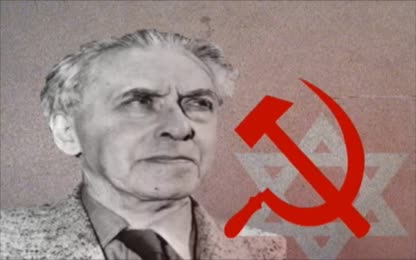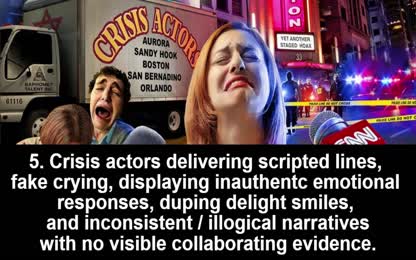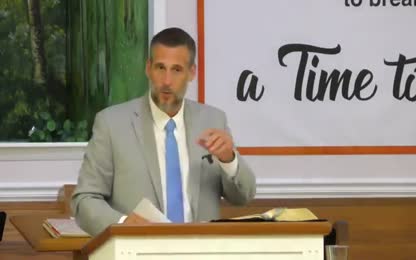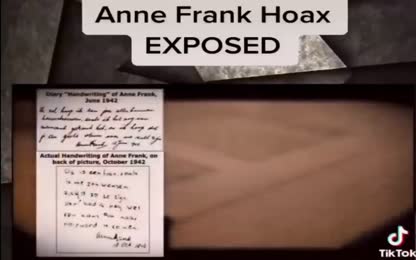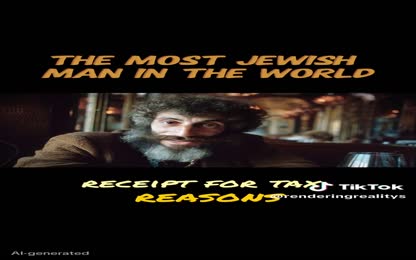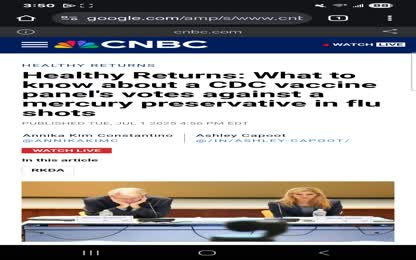Advertisement
The Jewish Character Of Sacha Baron Cohen Promotes The Antisemitism Hoax (mirror)
This James Corbett presentation is too good not to be mirrored on 153News. https://www.corbettreport.com/
- Category: Anti-Semitism Industry,Censorship / Prohibit Criticis,Conspiracy Theory/ Theorist ,Propaganda / Psychological War
- Duration: 26:41
- Date: 2019-12-11 19:15:17
- Tags: adl, anti-semitism, racism, propaganda, conspracy theorists, comedy, zionism, censorship
1 Comments
Video Transcript:
Welcome back to Propaganda Watch, James Corbett here at CorbettReport.com, and this week we're going to change things up a little bit, because although we are generally dealing with very serious and heavy intellectual subject matter here on the program, geopolitical or scientific or historical or philosophical or otherwise, this week let's just enjoy ourselves a little and just have a little bit of a laugh. Because I have a confession to make, I'm just a regular guy and sometimes I just like some dumb comedy to pass the time. In fact, you might say, I like it very much. Well, we have a high five. Yes, I vividly remember it must have been 13 years ago now sitting around with some of my friends here in Japan and watching the Borat movie and laughing our collective asses off at the admittedly stupid and juvenile jokes and humor in that movie, but still laughing nonetheless. And I haven't followed everything Sasha Baron Cohen has done or his new TV series or what have you, but I've seen some of his other stuff mostly in YouTube clips and some of it's very funny. And so it was kind of puzzling. I just discovered apparently Sasha Baron Cohen delivered the keynote address at the ADL's 2019 Never Is Now Summit on anti-Semitism and hate. Well, that's kind of strange, but hey, it's Sasha Baron Cohen, the man of a million characters. This is bound to be a laugh riot, right? So let's watch. Thank you, Jonathan, for your very kind words. Thank you, the anti-deformation leak for this recognition and your work in fighting racism, hate and bigotry. And to be clear, when I say racism, hate and bigotry, I'm not referring to the names of Stephen Miller's Labradoros. Ah, ah, Labradoodles. Yeah, I guess that's a funny word. Okay, it's a lame intro, but I'm sure it gets better from here. Let's stick with it. Now, I realized that some of you may be thinking what the hell is a comedian doing speaking at a conference like this? I certainly am. I've spent most of the past two decades in character. In fact, this is the first ever time that I've stood up and given a speech as my least popular character, Sasha Baron Cohen. And I have to confess it is terrifying. Wait a second, something's off about this. What is he up to here? I realize that my presence here may also be unexpected for another reason. At times, some critics have said my comedy risks reinforcing old stereotypes. The truth is, I've been passionate about challenging bigotry and intolerance throughout my life. As a teenager in England, I marched against the fascist national front and to abolish apartheid. As an undergraduate, I traveled around America and wrote my thesis about the civil rights movement with the help of the archives of the ADL. And as a comedian, I've tried to use my characters to get people to let down their god and reveal what they actually believe, including their own prejudice. Oh, I get it. Do you see? He's using Sasha Baron Cohen as another character. He's doing a bit here. This is brilliant. I love it. All right, let's see where this goes. Today, around the world, demagogues appeal to our worst instincts. Conspiracy theories once confined to the fringe are going mainstream. It's as if the age of reason the era of evidential argument is ending and now knowledge is increasingly delegitimized and scientific consensus is dismissed. Democracy, which depends on shared truths, is in retreat and autocracy, which depends on shared lies is on the march. Hate crimes are surging as a murderous attacks and religious and ethnic minorities. Now, what do all these dangerous trends have in common? I'm just a comedian and an actor. I'm not a scholar, but one thing is pretty clear to me. All this hate and violence is being facilitated by a handful of internet companies that amount to the greatest propaganda machine in history. The greatest propaganda machine in history. Let's think about it. Facebook, YouTube, and Google, Twitter and others, they reach billions of people, the algorithms, these platforms depend on, deliberately amplify the type of content that keeps users engaged, stories that appeal to our base of instincts and that trigger outrage and fear. It's why YouTube recommended videos by the conspiracist Alex Jones billions of times. It's why fake news, our performs real news, because studies show that lies spread faster than truth. And it's no surprise that the greatest propaganda machine in history has spread the oldest conspiracy theory in history. The lie that Jews are somehow dangerous. As one headline put it, just think what Gerboules could have done with Facebook. Yes, this is brilliant. You get it? This is comedy gold. He's going to show the audience how they're the fascists for wanting to suppress the political speech of their enemies under the guise of conspiracy theory. Oh, this is brilliant. You get it? I believe that it's time for a fundamental rethink of social media and how it spreads hate, conspiracies and lies. Now, last month, however, Mark Zuckerberg of Facebook delivered a major speech that not surprisingly warned against new laws and regulations on companies like here. Well, some of these arguments are simply part of my French bullshit. Let's count the ways. First, Zuckerberg tried to portray this whole issue as choices around free expression. That is ludicrous. This is not about limiting anyone's free speech. This is about giving people, including some of the most reprehensible people on earth, the biggest platform in history to reach a third of the planet. Freedom of speech is not freedom of reach. Sadly, there will always be racist misogynist anti-seemites and child abusers, but I think we can all agree that we should not be giving bigots and pedophiles a free platform to amplify their views and target their victims. Oh, you can tell. You can just tell how Sasha is going to edit this together when he's putting together whatever comedy show he's clearly working on. How they're going to show him saying this isn't about limiting free speech and then directly following that up with how they're going to limit free speech online. That's the kind of thing that he dwells on, that he's always doing in his comedy, showing how you can completely and utterly contradict yourself. But as long as it fits a certain narrative, the people there in the audience in that room are going to lap it up. But when people are watching this on TV at home, they're going to see that blatant contradiction and laugh at it because of course the people in that room are just idiots if they don't see and understand the rank of hypocrisy of what's going on here. This is this is just so good. Let's keep watching. Now if a neo-nazzi comes goose stepping into a restaurant and starts threatening other customers and saying he wants to kill Jews, would the owner of the restaurant, a private business, be required to serve him an elegant eight-course meal? Of course not. The restaurant owner has every legal right and indeed I would argue a moral obligation to kick that Nazi out and so do these internet companies. Right, just like the order of a bakery has every legal right to not make a gay wedding cake if they don't want to write. Oh, do you see how he's exposing the hypocrisy of the very people he's pandering to? You couldn't write stuff better than this. Leave it to Sasha Barronco and to come up with this cold. Still Zuckerberg says that people should decide what is credible, not tech companies. But at a time when two thirds of millennials say that they haven't even heard of Auschwitz, how are they supposed to know what's credible? How are they supposed to know that the lie is a lie? There is such a thing as objective truth. Facts do exist. And if these internet companies really want to make a difference, they should hire enough monitors to actually monitor. Work closely with groups like the ADL and the NAACP insist on facts and purge these lies and conspiracies from their platforms. He is making a joke here, right? There is a punchline coming any second now, right? In the end, it all comes down to what kind of world we want. In his speech, Zuckerberg said that one of his main goals is to uphold as wide a definition of freedom of expression as possible. It sounds good. Yet our freedoms are not only an end in themselves. They're also the means to another end. As you say here in the US, the right to life, liberty and the pursuit of happiness. But today these rights are threatened by hate, conspiracies and lies. So allow me to leave you with a suggestion for a different aim for society. The ultimate aim of society should be to make sure that people are not targeted, not harassed and not murdered because of who they are, where they come from, who they love or how they pray. If we make that our aim, if we prioritize truth over lies, tolerant over prejudice, empathy over indifference and experts over ignorant illnesses, then maybe, just maybe, we can stop the greatest propaganda machine in history. We can save democracy, we can still have a place for free speech and free expression, and most importantly, my jokes will still work. Thank you very much. Oh dear God, he's serious, isn't he? Or at least he's trying to be serious. Yes, he's actually getting up there and calling for online censorship and suppression of political speech and de-platforming people that he disagrees with in the name of saving democracy and having a space for free speech and expression, it makes no sense. It is laughable, but just probably not in the way that Sasha Baron-Cone is accustomed to getting laughs. Yes, this is a ridiculous speech, and as always, I will invite or even implore you to go and watch or at least read through the whole thing so you get it all in context of what he's saying and the way he's saying it. But I think we'll have to do a little bit of analysis of these ideas because agree or disagree with what he's saying. You have to admit it's at least Okunan. I mean, certainly, as you know, by now, I'm sure this is an idea that is increasingly popular amongst a large section of the public, whether on the left or the right side of the phony political spectrum, it doesn't matter. A lot of people do want to regulate big tech. The internet giants have gotten too big and the only way to solve it is to have government step in and regulate it. And it's baffling to me, but there are people on the left and the right, and supposedly the opposite sides of this, that both want some form of government regulation and censorship. It's just that, you know, as long as our guys are in charge of that process, that'll be the good end goal. Well, as I've talked about many times before and we'll continue to do so, this is a problem reaction solution, internet censorship addition, and it is leading us down the road towards the regulation, the institution of internet monopolies where none naturally exist. There is no reason you have to use these platforms, but there will be in the future once the regulatory hoops and hurdles are in place to make sure that competition, genuine competition to these platforms will never arise. But as I say, I've talked about that before. So let's let's look and address some of the very important things that Sasha Baron-Cone is raising in this attempt at a speech. And to do that, we're going to look at an article that I found very helpful in this regard. It's, I think, quite insightful in a number of points. It's by Mike Maznick over at Tecter.com. He wrote an article called Sasha Baron-Cone is wrong about social media, wrong about section 230, and even wrong about his own comedy. And let's address that last point first because I found this to be an insightful part of the article. Apparently this is something that a number of people have addressed so far, but it does talk about something that Sasha raises specifically in his speech, talking about his comedy and the way it functions and why it's funny. So let's look at that part of the speech. Now, I'm not going to claim that everything I've done has been for a higher purpose. Yes, some of my comedy, okay, probably half my comedy has been absolutely juvenile. And the other half completely pure old, but I admit there was nothing particularly in line thing about me as Borat from Kazakhstan, the first fake news journalist running through a conference of mortgage brokers while I was completely naked. But when Borat was able to get an entire bar in Arizona to sing, I thought, oh, the dude down the well, it did reveal people's indifference to anti-semitism. When, as Bruno, the gay fashion reporter from Austria, I started kissing a man in a cage fight in Arkansas, nearly starting a riot, it showed the violent potential of homophobia. And when disguised as an ultra-woke developer, I proposed building a mosque in one rural community, prompting a resident to proudly admit I am racist against Muslims, it showed the growing acceptance of Islamophobia. Now, that would, I think, be the pretty standard surface level interpretation of what's going on in his comedy, right? He's putting people in these ridiculous situations and then laughing at how they play into them. Oh, well, obviously they were really whatever fill in the blank, this character trait all along, and Borat, or Bruno, or Allie G, or whoever is allowing them to express it now. So we're finding, we're digging past that thin veneer of civility and finding out what's really underneath. Right? Well, as Mike Maznick points out in his article, once again, Sasha Baron-Cone is wrong about social media, wrong about section 230, and even wrong about his own comedy, that is in fact not the most interesting interpretation of what his comedy is doing. In fact, he argues that Cohen fundamentally misunderstands his own comedy, and he points to a pen-jolet podcast that apparently makes this point, and he writes in his article, Jolet argues, in a fairly compelling way, the opposite may actually be true. His belief is that Cohen is actually demonstrating how nice most people are, in that when they're approached by someone asking them to say or do something, they want to be nice and accommodate the person who's asking. The argument, which Penn explains in much more detail, is that if someone is talking to you in person, you might want them to like you and you want to be nice to them. And thus, if they ask you to do something silly or crazy, you might just do it out of kindness, or in some cases just playing along. And thus, his pen's pen-jolet's argument is that Sasha Burr and Cohen totally misunderstands his own comedy, and what it shows about human nature and how people, quote-unquote, really are. I think that's a pretty profound point, actually, and one that does, in fact, undermine the supposed point, I guess, of what Cohen thinks that he is trying to do in outing and gotching these people, oh look, you're really sexist because you said this when I was in this Borat character or what have you. Maybe not. Maybe there's a deeper level of what's going on in that social interaction. And Maznick goes on to make the point, if he so fundamentally misunderstands his own comedy, then perhaps some of that misunderstanding is now being used in spheres that are outside of Cohen's usual department. And he goes on to make that point more specifically looking at some of the things that Cohen was talking about in that speech. And let's highlight some of them. For example, he goes on to make an interesting point about this section 230 of the Communication Decency Act, which I'm sure we've all heard about by now at some point in this internet censorship debate that is gaining traction, as I say, on the right and the left sides of the phony political spectrum. And section 230, section 230, and whether an internet-provided platform like a YouTube or a Facebook is a platform, is it a provider, is it a public square? How do we regulate that? What does this have to do with section 230? Well, Maznick makes the point that Cohen, despite claiming correctly that the First Amendment doesn't apply to Facebook's hosting decisions, later on, he directly urges Congress to regulate speech on Facebook, which is very much prohibited by the First Amendment. And secondly, since so much of this argument is that Facebook and other internet companies need to be more aggressive in pulling down speech, you think he'd support section 230, which is what enables them to do so. But instead, he blindly and confusingly attacks it. In every other industry, you can be sued for the harm you cause. Publishers can be sued for libel. People can be sued for defamation. I've been sued many times. I'm being sued right now by someone whose name I won't mention because he might sue me again. But social media companies are largely protected from liability for the content they use as posts, no matter how indecent it is, by section 230, get ready for it, the Communications Decency Act. It's absurd. Fortunately, internet companies can now be held responsible for pedophiles who use their site to target children. So I say, let's also hold these companies responsible for those who use their sites to advocate for the mass murder of children because of their race or religion. And maybe finds are not enough. Maybe it's time to tell Mark Zuckerberg and the CEOs of these companies. You already allowed one foreign power to interfere in our elections. You already facilitated one genocide in Myanmar. Do it again and you go to jail. Continuing the masnick article, this is so backwards and confused that it's difficult to know where to start. Other than to note that the absurd part is in Cohen's description of all of this. First, the point of section 230 is not about removing liability, but about properly applying the liability to the party who actually broke the law. He's right that people can be sued for defamation because they said something defamatory. Section 230 makes sure that those who are defamed, sue those who defame them, and not the Intermitt Media Ritual that was used to publish the defamation. And as apparent shock that section 230 was part of a law called the Communications Decency Act, demonstrates his complete lack of knowledge of the history of the law and how it originated as a law for widespread censorship of the internet, which was all thrown out as unconstitutional. Section 230 is all that remains. Perhaps someone should send a macopy of Jeff Kasev's book, which explains all the history. His claim about internet companies can now be held responsible for pedophiles, seems to be a near total misreading of last year's passing of Fostah, which added an exception to section 230 for sex trafficking, not for pedophilia. And of course, as we've pointed out way too many times, section 230 has never protected sites from federal criminal charges in the first place. The final point is also nonsense. How exactly is Mark Zuckerberg supposed to prevent everyone from misusing Facebook to avoid apparent jail time? Cohen's answer in the speech is a mixture of ignorance and nonsense. He suggests hiring as many people as it takes, and also not posting stuff to the internet until it's been reviewed. But that assumes falsely that there is a solution that is just higher more moderators. This is a riff on the standard, nerd harder idea, but it's equally nonsensical. We're right back to the masnick impossibility theorem. He's assuming there's some optimal level of content moderation that can be reached by just throwing more resources at it. There is not. He might as well be suggesting that the answer to all the bigots in the world is for Hollywood to hire more sashabar and cones until they expose them all. It's a silly suggestion that makes no sense. All right, I'll stop reading the article there. There's a lot more points that masnick makes that I think are worth making in regards to this speech, but at least this gives you a sense of some of the deeper issues that are involved here beyond. The absolute on its face, nonsense of saying that censoring speech online is going to provide a safe space for free speech online or something along those lines and that we shouldn't regulate the internet, but we definitely need Congress to regulate the internet. All of the other blatant contradictions that maybe Cohen doesn't even understand that he's making. I don't know. I'm not going to psychologize it. I'll let you come to your own conclusions. But at any rate, this is not just nonsense. I wish it was just nonsense. It is, of course, yet another brick in the wall of the argument for the censorship of the internet. And of course, it goes back to the old canards about conspiracy theorists online. And let me guess it's going to be up to organizations like the ADL and their partners in the mainstream media to decide which sites get to or do not get to use these platforms or to post information on the internet generally. And we all know where this is heading. We all know where this is heading. And this is the type of speech that is going to lead us there step by step by creating a demand or at least seeming demand for this very type of censorship. And as I say, this is being supported in various ways on both the left and the right right now that we did well. Of course, we need to break up big tech and we need to have the government come in and moderate and regulate it in some way. It's just, of course, maybe the two sides of the phony spectrum will differ on how that should be done. But of course, the government needs to step in and take control, nationalize the internet or something along those lines, which again, I have gone through this before. If you did not watch my episode on problem reaction solution internet censorship edition, please go back to it. And we will continue going and following this, the trajectory of this narrative as it continues to unfold. But hopefully, we can throw a few monkey wrenches into the works and stop this process or derail it or in other ways deflect it before it brings us to the point where voices like mine will undoubtedly be censored off of the internet altogether. Because after all, I'm a couldspiracy theorist, aren't I? All right, as always, the links to all of the direct sources that we're talking about here today, including of course that speech will be included in the show notes. So please go and check it out for yourself. That's going to do it for today. I am James Corbyt of Corbyt report.com









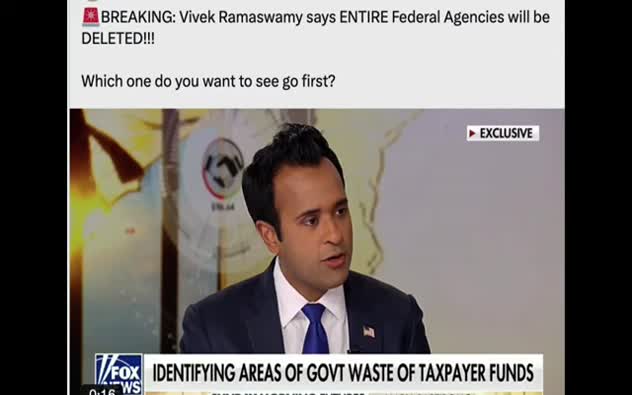
 Donate
Donate